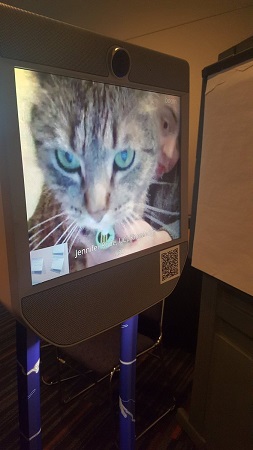
Bio:
Jennifer Rode is a Professor of Equity and Human Computer Interaction at University College London in Educational Technology at the Institute of Education. She holds a PhD from the University of California, Irvine, where she worked with Paul Dourish. In her dissertation, she ethnographically studied the programmability of domestic technologies and examined gendered patterns of use. She holds a Masters in HCI, as well as, a BS in Anthropology both from Carnegie Mellon. She has ten years of experience in the HCI industry beyond her formal studies as a usability engineer, ethnographer and consultant, working on product design and evaluation. She previously worked as a usability engineer at TiVo evaluating its user interface and conducting ethnographic studies. Dr. Rode combines her industry and research experience to critically reflect on the practice of design as a whole, and how understanding of cultural theory and engaging in ethnographic practice can be combined to inspire design. Her research focuses on critical computing looking at how values on gender, disability and race are embedded into technology, with an aim towards ensuring social justice. She is especially interested in diversity issues around new technologies such as telepresence robotics and makerspaces. Dr. Rode is an ACM Distinguished Scientist.
Available Lectures
To request a single lecture/event, click on the desired lecture and complete the Request Lecture Form.
-
Best Practices for Accessible Meetings and Conferences
This lecture draws from my experience as founding chair of the ACM AccessSIGCHI to ensure more equitable participation by disabled people in computing. It overviews the major categories of...
-
Ensuring Gender Diversity in Computing
Research shows women are leaving computing at alarming rates, and this talk explores the reasons behind it. Feminist Science and Technology Studies discusses how gender inauthenticity, the...
-
From Computational Making to Computational Thinking
Computational thinking is considered best practice for teaching computing and more broadly to solve problems and design systems, however, as computing extends beyond the desktop (for instance...
-
Telepresence in Education
Telepresence robots are meant to provide physical access to spaces allowing increased immersion for remote users as compared to Zoom or Skype. Telepresence has compelling implications for...
To request a tour with this speaker, please complete this online form.
If you are not requesting a tour, click on the desired lecture and complete the Request this Lecture form.
All requests will be sent to ACM headquarters for review.
